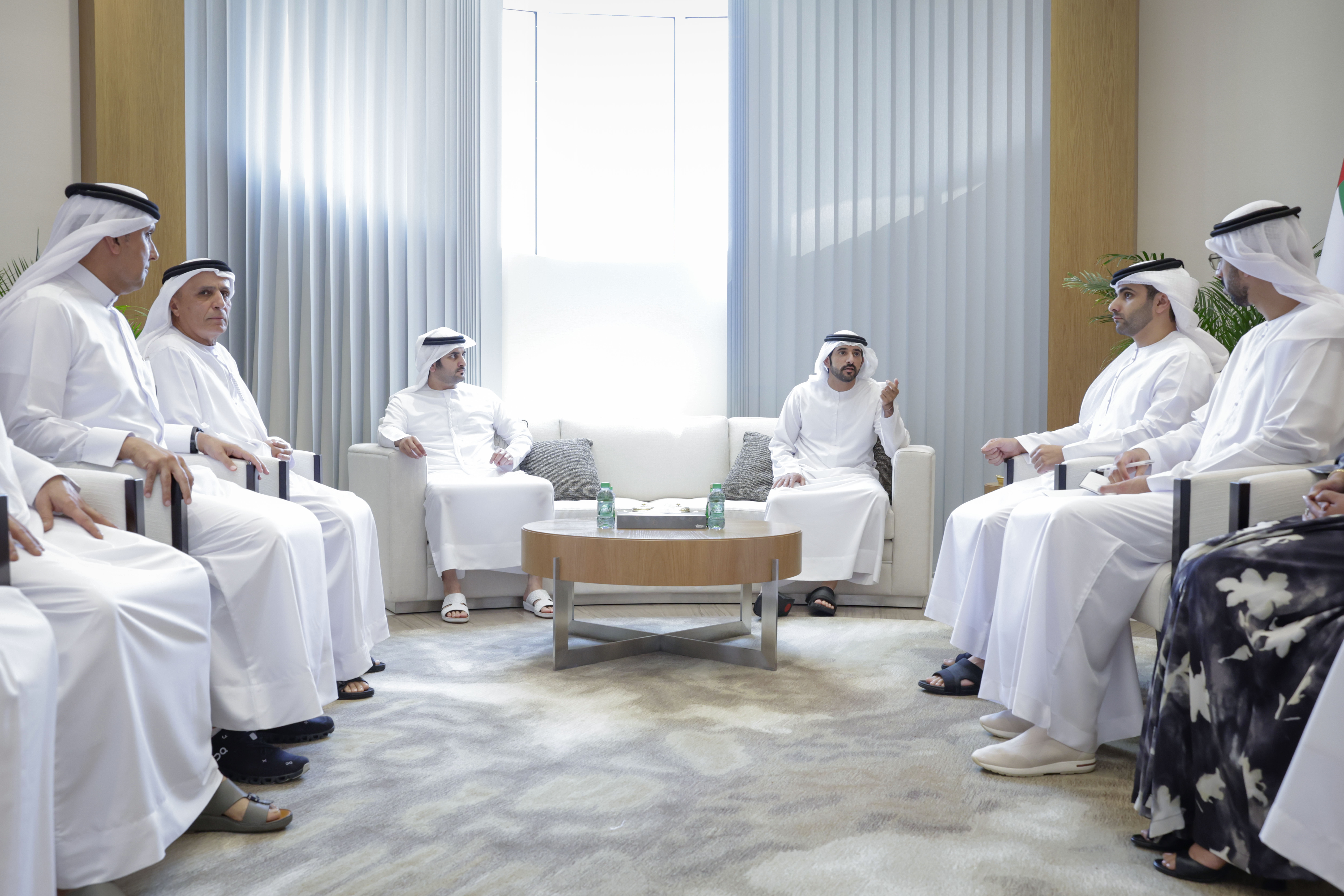
Dubai’s Crown Prince Initiates Swift Response: Weather Preparedness Plan in Full Swing
His Highness Sheikh Hamdan bin Mohammed bin Rashid Al Maktoum, the Crown Prince of Dubai, known affectionately as Prince Fazza, has issued a directive focused on optimizing Dubai’s weather preparedness. This proactive approach mandates Dubai Government entities to enhance the city’s readiness for unforeseen weather conditions.
Under the guidance of Hamdan bin Mohammed Al Maktoum, the comprehensive plan emphasizes anticipation and prevention to safeguard the safety of citizens, residents, and visitors. This initiative represents a significant step towards bolstering Dubai’s emergency response capabilities against extreme weather events.
Overview of the Directive
Key Components of the Directive
1. Establishment of a Weather Preparedness Committee
Hamdan Bin Mohammed Al Maktoum’s directive includes the formation of a dedicated Weather Preparedness Committee. This body is tasked with overseeing the implementation of the directive’s guidelines and monitoring the progress of various preparedness initiatives. The committee’s role is crucial in coordinating between different government entities to ensure a unified approach to weather challenges.
2. Development of Proactive Plans
The directive mandates the development of comprehensive, proactive plans to enhance Dubai’s readiness for unexpected weather conditions. These plans are designed to cover various scenarios, ensuring that the emirate can respond effectively to both current and future weather-related challenges. This involves updating emergency response systems and creating new mechanisms for crisis management, backed by thorough and actionable strategies.
3. Public Safety and Awareness
A significant focus of the directive is the safety of all citizens, residents, and visitors in Dubai. It emphasizes public awareness and education about weather-related risks, ensuring that the community is well-informed and prepared. Additionally, the directive plans to implement real-time weather updates and alerts, enhancing communication channels to provide timely and accurate information to the public and relevant authorities.
Impact of Recent Weather Conditions
Temperature and Humidity Trends
- Rapid Temperature Increases: Recent conditions have seen temperatures in Dubai soar to 50 degrees Celsius, creating significant challenges for daily activities and health, with increased cases of heat strokes and dehydration.
- Surging Humidity Levels: Humidity has reached peaks of 90%, amplifying the discomfort and potential health risks associated with the heat.
Economic and Infrastructure Challenges
- Strain on the Construction and Tourism Sectors: The extreme heat has slowed construction projects, escalating costs, and deterring tourists, vital to Dubai’s economy, who seek cooler climates.
- Power Grid and Traffic Impacts: With the heightened demand for air conditioning, Dubai’s power grid has experienced strains, leading to sporadic outages. Additionally, the intense heat has reduced daytime traffic, easing congestion but indicating the severity of the weather’s impact.
Responses and Long-Term Predictions
- Government and Community Initiatives: Measures such as increased public transport frequency and distribution of free water aim to mitigate heat effects. Community education on flood preparedness and infrastructure resilience is also being emphasized.
- Future Weather Forecasts: Meteorologists predict that such extreme weather events will become more frequent, urging a strategic review of disaster preparedness and infrastructure resilience.
Strategies for Enhanced Emergency Response
Integration of Advanced Technologies
- AI and Data Analytics: The implementation of AI and advanced data analytics is pivotal in transforming infrastructure management. These technologies are instrumental in predicting flood risks and optimizing traffic during heavy rains, thus enhancing emergency responses.
- IoT Sensors: Utilizing IoT sensors, such as water level sensors, provides real-time data crucial for monitoring emergencies. This live data aids in dynamic resource allocation and rapid response strategies, ensuring timely interventions during critical weather events.
- Early Warning Systems: Deployment of sophisticated early warning systems that deliver real-time weather updates and alerts enables authorities to execute swift actions, minimizing potential impacts on public safety and infrastructure.
Public Engagement and Infrastructure Resilience
- Public Awareness Campaigns: Educating the public on the risks associated with extreme weather conditions through comprehensive campaigns is essential. These initiatives focus on emergency procedures and the importance of adhering to official warnings.
- Building Codes and Standards: Strict enforcement of building codes and maintaining high infrastructure standards are crucial. These measures ensure that structures can endure adverse weather conditions, safeguarding both property and lives.
- Regular Drills and Reviews: Conducting regular emergency response drills tests the effectiveness of existing plans. Additionally, post-event reviews are critical for identifying areas of improvement, ensuring that responses become more efficient over time.
Coordination and Continuous Improvement
- Interagency Collaboration: Effective collaboration among various government agencies, emergency services, and the public is key to a robust emergency response system. This coordination ensures that all parties are prepared and responsive during emergencies.
- Periodic Reporting: The Weather Preparedness Committee submits regular reports to The Executive Council of Dubai. These reports are vital for tracking progress and adapting strategies to evolving weather patterns and challenges.
- Technological Integration: Further integration of technology, such as machine learning, into emergency management processes significantly boosts the city’s response capabilities, setting a high standard for urban emergency preparedness globally.
Through the visionary directive of His Highness Sheikh Hamdan bin Mohammed bin Rashid Al Maktoum, Dubai has taken a commendable step towards enhancing its weather preparedness. The establishment of a Weather Preparedness Committee, alongside the development of proactive plans and a strong emphasis on public safety and awareness, underscores a comprehensive approach to tackling the challenges posed by extreme weather conditions. This initiative not only aims to safeguard the well-being of Dubai’s citizens, residents, and visitors but also seeks to minimize the economic and infrastructural impacts of such adverse conditions, ensuring the city’s resilience and sustainability in the face of climatic uncertainties.
The long-term implications of these efforts extend beyond immediate disaster response, venturing into areas of technological advancement, community engagement, and infrastructure resilience. As Dubai integrates advanced technologies like AI, IoT sensors, and early warning systems, it sets a global benchmark for urban emergency preparedness. By fostering interagency collaboration and continuous improvement through regular drills, reviews, and technological integration, Dubai is not just preparing for the future; it is actively shaping a model that cities worldwide can emulate. These strides toward enhanced emergency response and weather preparedness are critical, especially in an era where extreme weather events are becoming increasingly common, highlighting a global imperative to prioritize climate resilience and disaster readiness.





